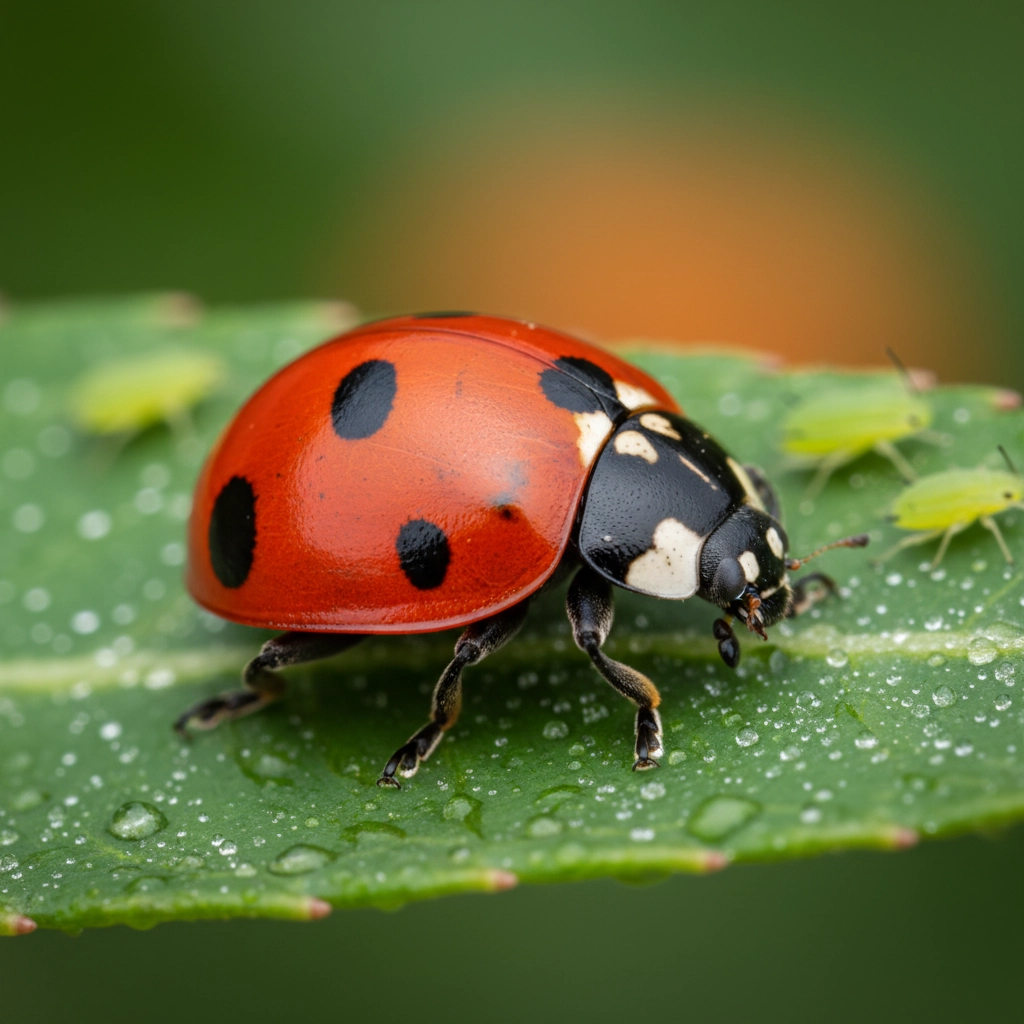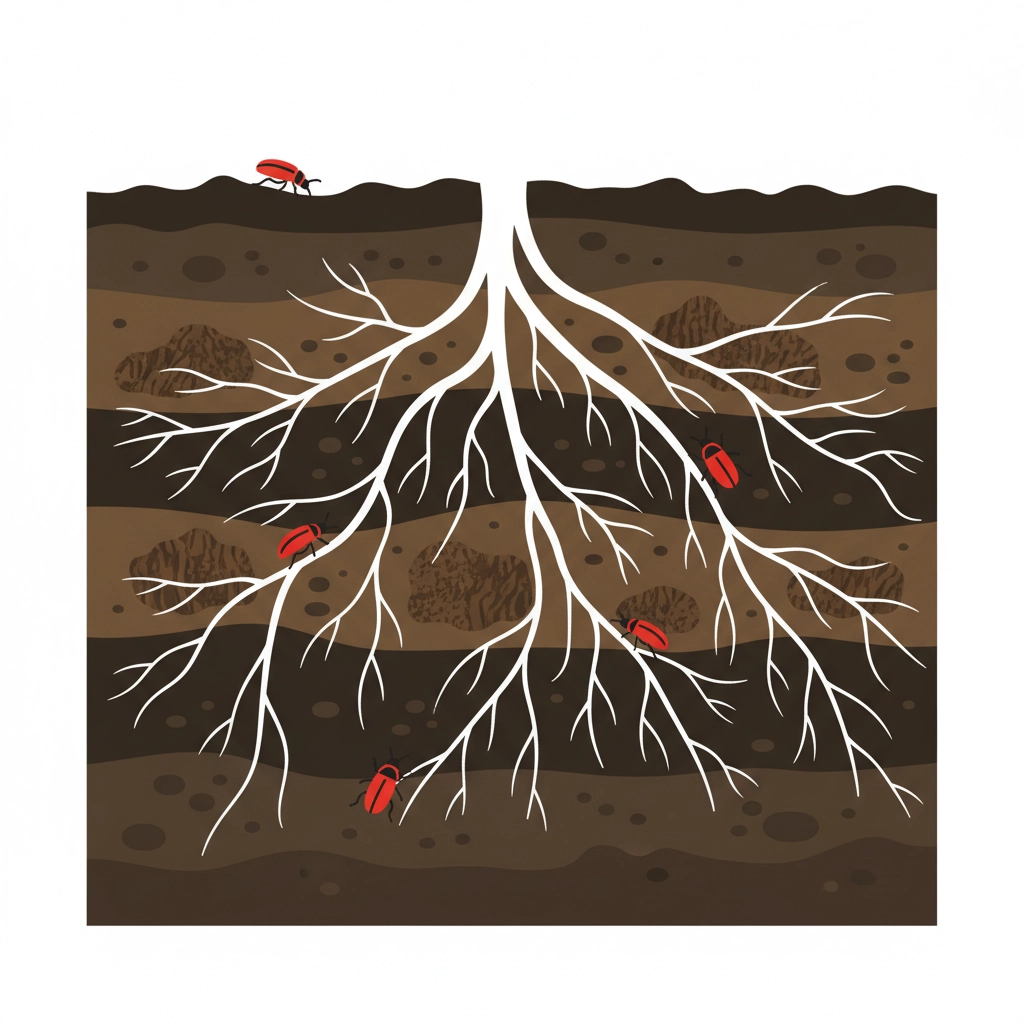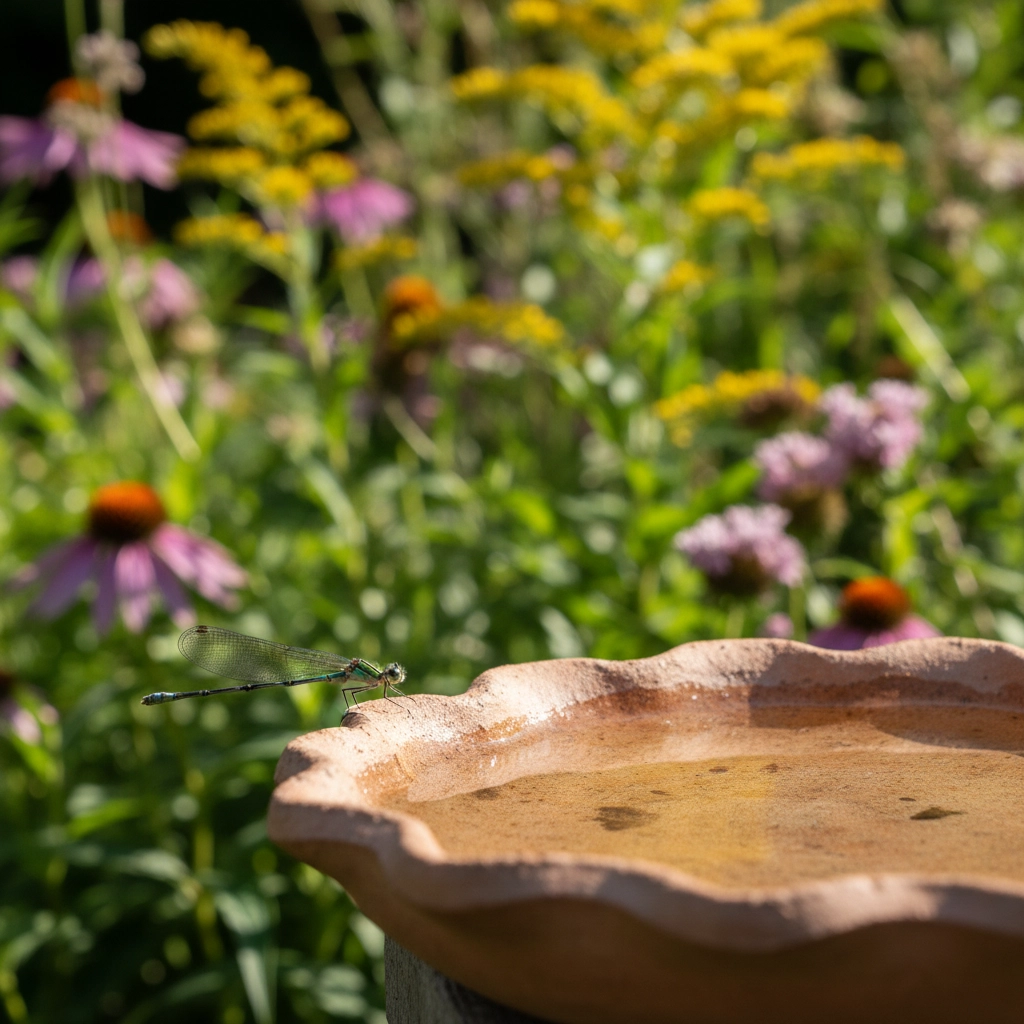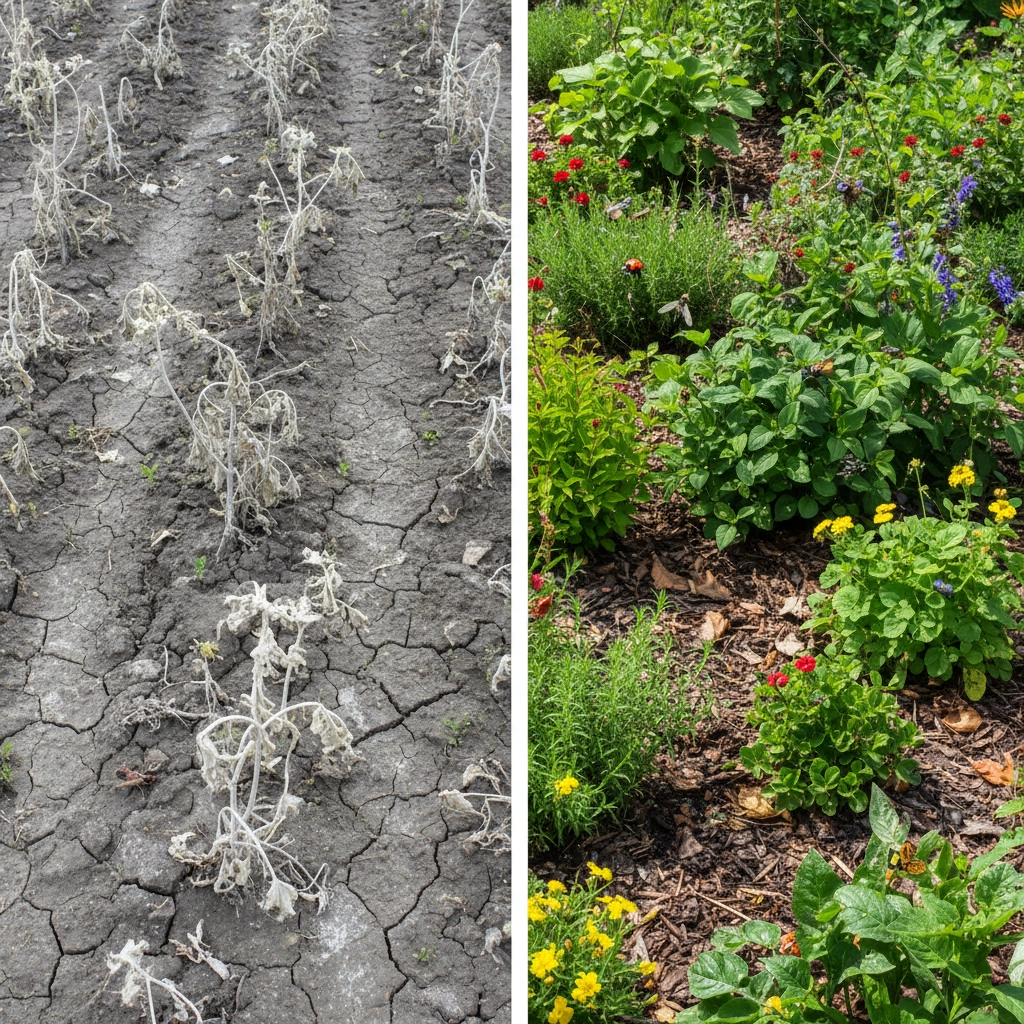Not All Bugs Are Bad: The Benefits of Insects Around Your Home and Cottage
- Targeted Wildlife and Pest Solutions

- Sep 27, 2025
- 5 min read
When you spot insects around your Haliburton County home or cottage, your first instinct might be to reach for the bug spray. But before you do, take a moment to consider this: the vast majority of insects you encounter are actually working in your favor. These beneficial creatures provide essential services that keep your property healthier, more beautiful, and naturally balanced.
Understanding which insects are helpful: and how to encourage them: can transform your approach to property maintenance while reducing your reliance on chemical treatments.
Your Natural Pest Control Team
The most valuable service beneficial insects provide is natural pest control. These predatory insects work around the clock to keep harmful pest populations under control, often eliminating problems before you even notice them.
Consider the assassin bug, a fierce predator that targets aphids, small caterpillars, leafhoppers, mealybugs, and thrips throughout its entire lifecycle. Both the young nymphs and adult assassin bugs actively hunt these pests, providing consistent protection for your plants and garden areas.
Green lacewings offer another layer of defense, particularly against aphids, spider mites, whiteflies, and thrips. Their larvae are especially voracious, consuming large numbers of pests during their development period. You might not see them working, but their impact on pest populations around your property is significant.

The familiar ladybug represents perhaps the most recognized beneficial insect. A single ladybug can consume up to 50 aphids per day, while also feeding on mealybugs, mites, and scale insects. Both the spotted adults and their spiny larvae actively hunt pests, making them valuable allies in maintaining healthy outdoor spaces.
Even spiders, despite their intimidating appearance, serve as excellent pest controllers. They capture flies, mosquitoes, and other problematic insects that might otherwise find their way into your home or disrupt your outdoor activities.
Essential Pollination Services
Beyond pest control, many beneficial insects play crucial roles in plant reproduction and garden productivity. Bees, butterflies, moths, and various flies transfer pollen from flower to flower, enabling plants to produce seeds and fruit.
Native bees are particularly valuable for anyone maintaining gardens, vegetable patches, or fruit trees around their cottage. Without these pollinators, most fruits and vegetables would never develop properly. By creating conditions that support native bee populations, you directly contribute to the success of your landscaping and food production efforts.
Butterflies and moths also contribute to pollination, often targeting different flowers than bees and extending the range of plants that receive pollination services. This diversity of pollinators ensures more complete fertilization and better plant reproduction throughout your property.
Supporting Soil Health and Decomposition
Beneficial insects contribute significantly to soil health and nutrient cycling around your property. Various beetles, ants, and other decomposer insects break down dead plant material and organic waste, converting these materials into nutrients that enrich your soil.
This natural recycling system creates healthier soil conditions without requiring artificial fertilizers or extensive soil amendments. The result is more robust plant growth and better water retention in garden beds and landscaped areas.

Key Beneficial Insects to Recognize
Learning to identify helpful insects can prevent you from accidentally eliminating valuable allies. Here are some of the most effective beneficial insects you might encounter around your Haliburton County property:
Minute pirate bugs may be small, but they're mighty predators that consume aphids, caterpillar eggs, leafhoppers, mealybugs, spider mites, and thrips. Both their nymph and adult stages actively hunt pests, providing consistent protection throughout the growing season.
Praying mantids function as generalist predators, adapting their diet as they grow. Young mantids focus on smaller pests like aphids, caterpillars, leafhoppers, and mosquitoes, while mature mantids tackle larger insects including beetles, grasshoppers, and crickets.
Ground beetles patrol your property at night, consuming soil-dwelling pests, slug eggs, and various larvae that might damage plants. These nocturnal hunters help control problems you might never see during daylight hours.
Parasitic wasps lay their eggs inside or on harmful insects, effectively eliminating pests without any intervention from you. These tiny wasps target specific pest species, providing precise biological control that doesn't harm beneficial insects.
Creating a Welcoming Environment
You can encourage beneficial insects to establish populations around your property through simple, strategic approaches that require minimal effort or investment.
Plant selection plays a crucial role in attracting helpful insects. Flowers like marigolds, sunflowers, and lavender provide both nutrition and shelter for beneficial species. Native wildflowers and herbs often prove particularly attractive to local beneficial insects.
Diverse plantings create habitat for different beneficial insects throughout the growing season. Early-blooming flowers support beneficial insects emerging from winter, while late-season blooms provide resources as they prepare for colder months.

Water access is equally important for maintaining beneficial insect populations. A shallow dish of water in your garden provides necessary hydration, though you should change the water frequently to prevent mosquito breeding. Natural water sources like small ponds or streams also attract beneficial insects.
Shelter options help beneficial insects survive harsh weather and find safe places to reproduce. Leaving some areas of your property slightly wild, maintaining brush piles, or installing insect houses can provide essential habitat for helpful species.
Avoiding Harmful Practices
The most critical step in supporting beneficial insects is avoiding broad-spectrum pesticides that kill helpful insects along with harmful ones. Chemical treatments often eliminate the natural predators that would otherwise control pest populations, creating cycles of dependency on artificial controls.
When pest problems do require intervention, targeted approaches prove more effective at preserving beneficial insect populations. Identifying specific pest species and selecting treatments that address those particular problems without harming beneficial insects creates better long-term results.
Timing also matters when applying any treatments. Many beneficial insects are most active during specific times of day or seasons, so scheduling treatments to minimize impact on helpful species improves both immediate effectiveness and long-term balance.
Sustainable Pest Management Strategy
Recognizing and protecting beneficial insects creates a sustainable approach to property maintenance that reduces costs, minimizes environmental impact, and provides more consistent results than chemical-dependent methods.
This biological approach maintains natural population balances that prevent major pest outbreaks. Rather than eliminating all insects and creating conditions where pests can rapidly reestablish themselves, supporting beneficial species creates ongoing protection that adapts to changing conditions.

The presence of diverse beneficial insects also indicates overall ecosystem health around your property. When beneficial species thrive, it typically means your outdoor spaces are balanced and sustainable, requiring less intervention to maintain their appearance and productivity.
Working with Professional Services
While beneficial insects provide excellent natural pest control, some situations require professional intervention to address specific problems or protect your property from damage.
Professional pest control services can help you identify which insects are beneficial and which require management, ensuring that treatments preserve helpful species while addressing legitimate concerns. This targeted approach maintains the natural balance that keeps pest populations controlled long-term.
When you need assistance with pest management around your Haliburton County property, working with professionals who understand the value of beneficial insects ensures that solutions support rather than undermine the natural systems that protect your home and cottage.
By shifting your perspective from viewing all insects as problems to recognizing the valuable services many provide, you can create outdoor spaces that are naturally balanced, environmentally sustainable, and require less maintenance over time. The key is learning to work with nature's pest control systems rather than against them, supporting the beneficial insects that keep your property healthy and beautiful throughout the seasons.
Comments